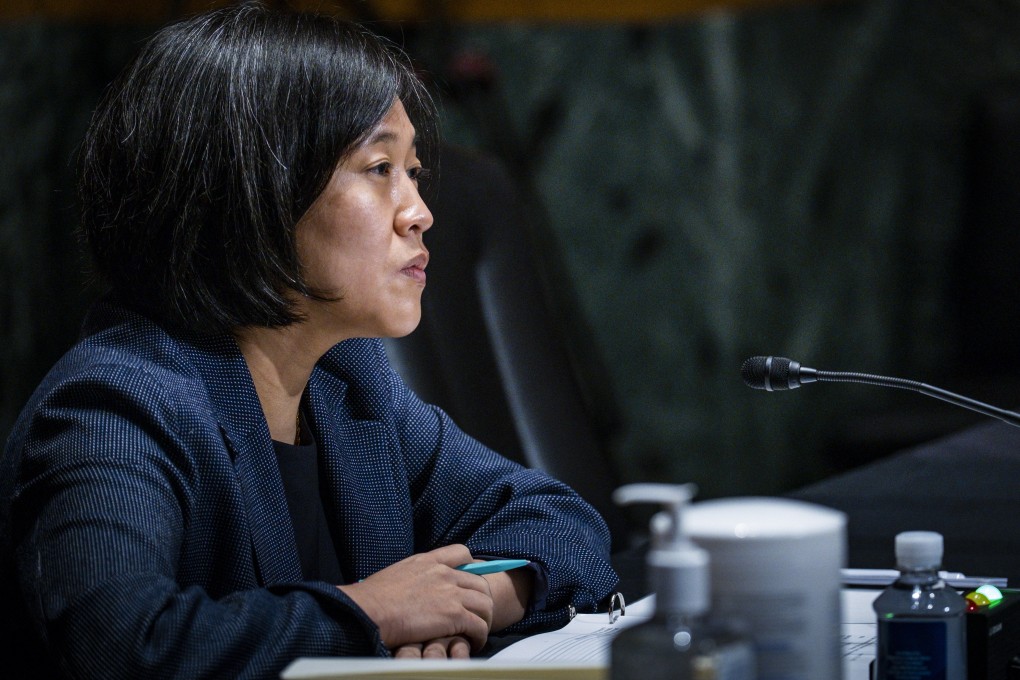US to compete with China’s ‘harmful’ trade practices through domestic recovery and allies
- ‘We are clear-eyed about China’s doubling down on its harmful trade and economic abuses,’ the United States Trade Representative’s annual report says
- While light on details, report says US will bolster ties with trade allies that are also concerned about Chinese business practices

The United States declared on Tuesday that it would compete with China and its “harmful” trade practices this year through domestic post-pandemic recovery and stronger ties with allies.
“We are clear-eyed about China’s doubling down on its harmful trade and economic abuses,” the report by the Office of the US Trade Representative (USTR) said. “We are also considering all existing tools – and will potentially seek new ones as needed – to combat the harms of China’s state-led, non-market practices.”
While light on details of what steps might be taken, the USTR annual report to the US Congress, which describes the US trade policy agenda for the coming year, said that US officials would bolster ties with American trade allies – other market-based economies also concerned about Chinese business practices.
The report accused China of hurting supply chains by “unduly concentrating production of certain goods”.
The ability to defend against unfair Chinese practices requires that market economies act in concert to confront policies and practices that are fundamentally at odds with a global trading system based on market competition
“The ability to defend against unfair Chinese practices requires that market economies act in concert to confront policies and practices that are fundamentally at odds with a global trading system based on market competition,” it said.